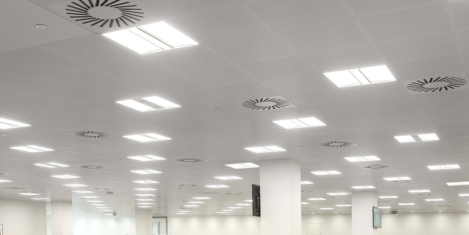To provide the best experiences, we use technologies like cookies to store and/or access device information. Consenting to these technologies will allow us to process data such as browsing behaviour or unique IDs on this site. Not consenting or withdrawing consent, may adversely affect certain features and functions.
The technical storage or access is strictly necessary for the legitimate purpose of enabling the use of a specific service explicitly requested by the subscriber or user, or for the sole purpose of carrying out the transmission of a communication over an electronic communications network.
The technical storage or access is necessary for the legitimate purpose of storing preferences that are not requested by the subscriber or user.
The technical storage or access that is used exclusively for statistical purposes.
The technical storage or access that is used exclusively for anonymous statistical purposes. Without a subpoena, voluntary compliance on the part of your Internet Service Provider, or additional records from a third party, information stored or retrieved for this purpose alone cannot usually be used to identify you.
The technical storage or access is required to create user profiles to send advertising, or to track the user on a website or across several websites for similar marketing purposes.
 Bisley’s award-winning MultiDrawer has firmly established itself as a much-loved piece of furniture since it was designed by Freddie Brown in 1958 and is found in many forms within the traditional office or the home. Now, as part of their new Belong collection, Bisley has launched the MultiRange, a reinvention of the iconic MultiDrawer to reflect the more flexible working patterns we’ve all adapted to in 2020. Accompanied by an accessory range that can be also incorporated into the original MultiDrawer, the MultiRange makes the design classic work even harder in your space. (more…)
Bisley’s award-winning MultiDrawer has firmly established itself as a much-loved piece of furniture since it was designed by Freddie Brown in 1958 and is found in many forms within the traditional office or the home. Now, as part of their new Belong collection, Bisley has launched the MultiRange, a reinvention of the iconic MultiDrawer to reflect the more flexible working patterns we’ve all adapted to in 2020. Accompanied by an accessory range that can be also incorporated into the original MultiDrawer, the MultiRange makes the design classic work even harder in your space. (more…)


















 New research by management consultancy
New research by management consultancy 




 Environmental and sustainability professional,
Environmental and sustainability professional, 







October 28, 2020
It`s not just businesses that need to wake up to changes in the way we work. Governments do too
by Jeremy Stein • Comment, Workplace design